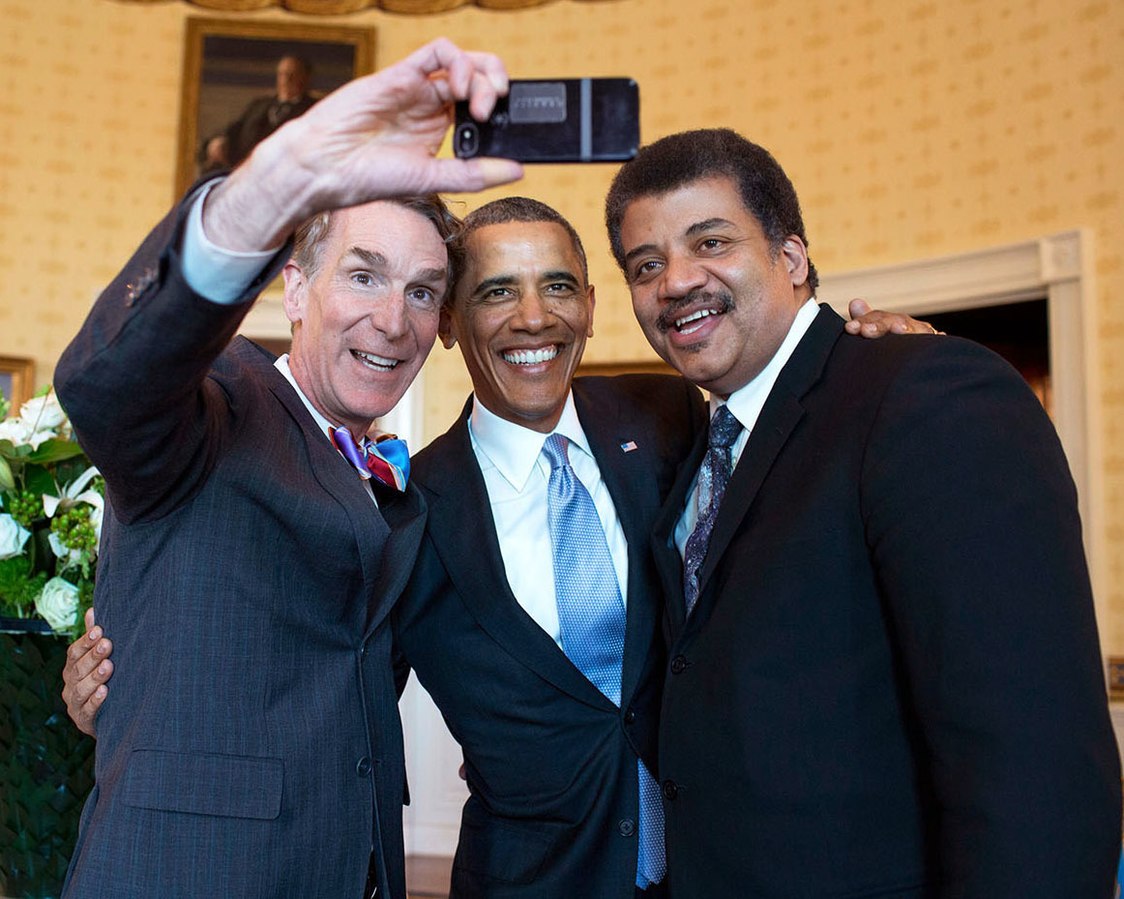Flat Earth, Science, and Other Religions
“I was so frustrated about getting told I was an idiot,” one man said. His nametag read, “Dan, The Water Man.” He continued, “So I said, ‘Laugh at me all you want because science is different than the s*** they’re giving [us].’”
Dan was one of the many interviewed on Netflix’s new-ish documentary, “Beyond the Curve,” highlighting the Flat-Earth movement that has swept over segments of pop culture in recent years, even influencing famous athletes and rappers. Joe Rogan’s recent wave-making podcast with Alex Jones and Eddie Bravo featured the subject at length. Apparently, it’s no joke. These people are serious and the movement is growing.
Similar to the conundrum I posed in my recent Pin-Up “Faux News,” one would have to ask if our lives have been profoundly improved by the advent of the internet and its wealth of information. We have access to the largest collection of human knowledge at our fingertips - a proverbial sea of facts - and there are people who deny that we live on a sphere. How? Similarly, how have movements such as anti-vaccination gained so much ground?
I can relate to Dan, the Water Man. I have beliefs of my own that would be found asinine, if not contemptible, by any modern, educated person. Like many that hold contentious beliefs, they have found a feeling of disdain aimed at them from the scientific community (and intelligentsia at large) and its constant missives, from what to drive, to what to eat. It seems as though people like Richard Dawkins and Neil deGrasse Tyson are enthusiastic in telling someone how wrong they are.
Writer and mathematician David Berlinski sums it up much more succinctly than I could dream, in an interview with the Hoover Institution: “A great many men and women have a dull hurt; [an] angry sense of being oppressed by the sciences. They're frustrated by endless scientific boasting [and] they suspect that the scientific community holds them in contempt.” He explains, “...Anyone living has this feeling there is a group of experts; a ‘band of happy experts.’ And as experts will do, they derive enormous pleasure from telling the rest of us how to think, what doctrines to uphold, [etc.]…” [Quote from his book contained]
Who among us hasn’t been guilted into pitching our can into the recycling bin after tut-tutters remind us our planet is dying? (We only have 12 years left on Earth before we all die, don’t you know.) In ‘89, a UN official said some countries would be wiped off the map due to rising sea levels by the year 2000. We were already supposed to have reached “peak oil” numerous times. When was it that we uncovered that sugar was the substance to watch out for instead of fat, as we had all been taught? The age of the Earth was once 24 million years old. Now it’s something like 5 billion.
The “consensus” determined by the scientific community is in flux at all times. Likewise, “scientific consensus” is constantly being dictated by political purpose, not thoughtful inquiry. But we, as their political and intellectual subordinates, nod along and accept their conclusions.
The plight of scientism has left many disenfranchised, leading them to say something similar to Dan; “What do they know?” As Dr. Belinski explains, “What headline in any newspaper is more apt to provoke a sense of aggression and disbelief more than, ‘Scientists Say...’?”
Dr. Sprios Michalakis, a physicist from the same Netflix documentary, said, “The worst case scenario is [scientists] just completely push these individuals [to] the fringe of society and then society just... [lose] them.” He continues, saying what goes without, “The problem I see is actually not from the side of the conspiracy theorist; it is actually is from our side, the side of science. Very often it is difficult not to look down.”
Ouch. Is it that hard not to glance down upon us from ivory towers?
The issue continues to unravel in that after academics push away the public, we get up and look around to discover that there are more like us, all around. We then clique together as humans are want to do.
Just as a couple of sisters find themselves bonding over a laughably terrible movie or kids in school becoming friends after finding out they both like the Seahawks, nothing unites like a common belief or a common enemy or a common struggle. Such extends into adulthood. There is a feeling of community under the roof of a church because you know your neighbor probably thinks similarly to you. And so at a political rally or Comic-con, and so on.
Those that find themselves with a different point of view than most, tend to group together. It’s the same for any religion. In fact, you could say the same about atheists or those aforementioned scientists. For all intents and purposes, those beliefs are their respective religions and often the issues that define them. Just as Christians are called out for their “crazy,” flying-spaghetti-monster faith, Dawkins worships at his own personal sycophantic altar of belief. It is the same among anti-vaxxers, climate-change-deniers, “grassy-knollers,” or “young-earthers” in their passion. And opposition is often what fuels their fervor.
A speaker from the documentary goes on to ask what I’d like to ask readers: “How are you a ‘flat-earther?’ Where are you and your people the protagonist in a Disney movie? Where are you constructing your reality?” I’m acutely aware of where I’m a ‘flat-earther’ in my life. My message to you is this, be wary of your own skepticism and diligent in your own research, but do not be discouraged in your so-called “fringe” beliefs. We are in the same, lonely boat, bracing against the waves of criticism and faithlessness.

